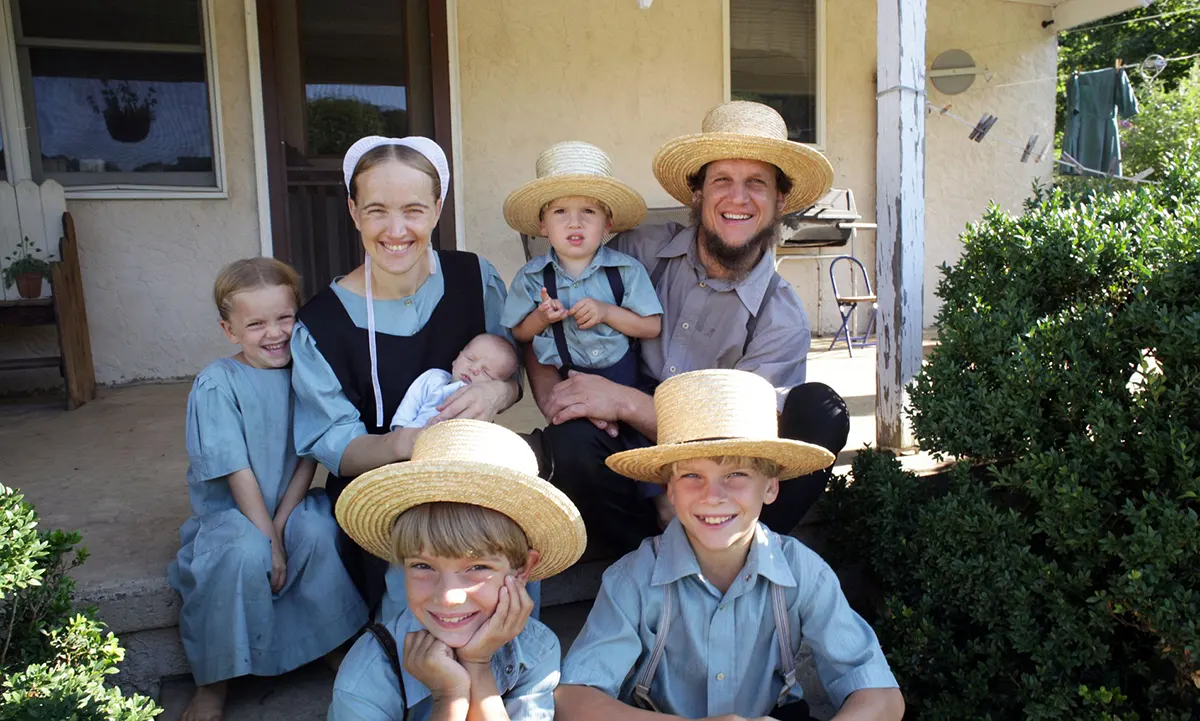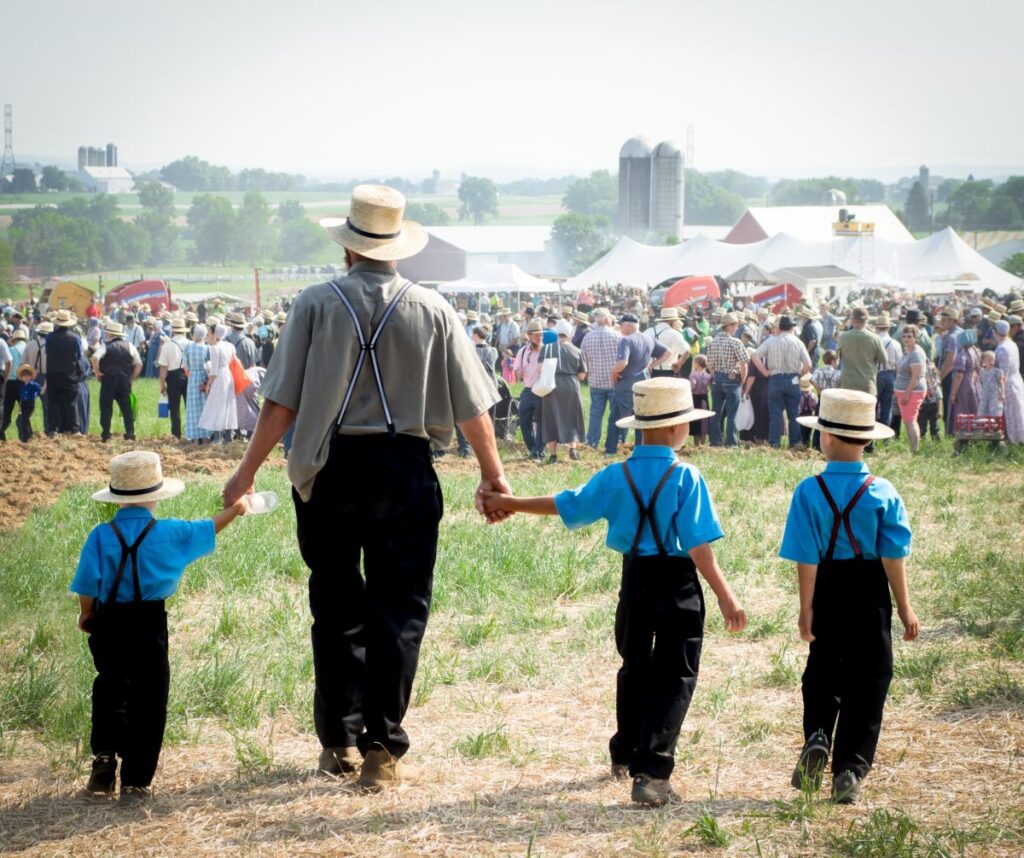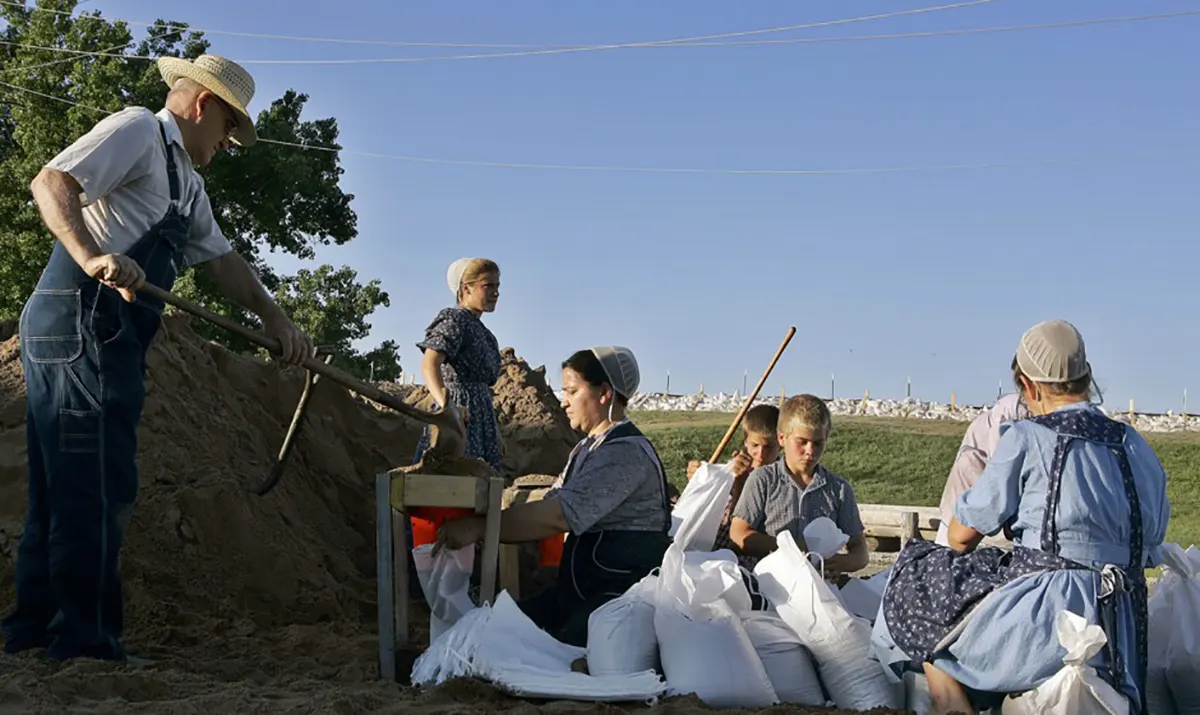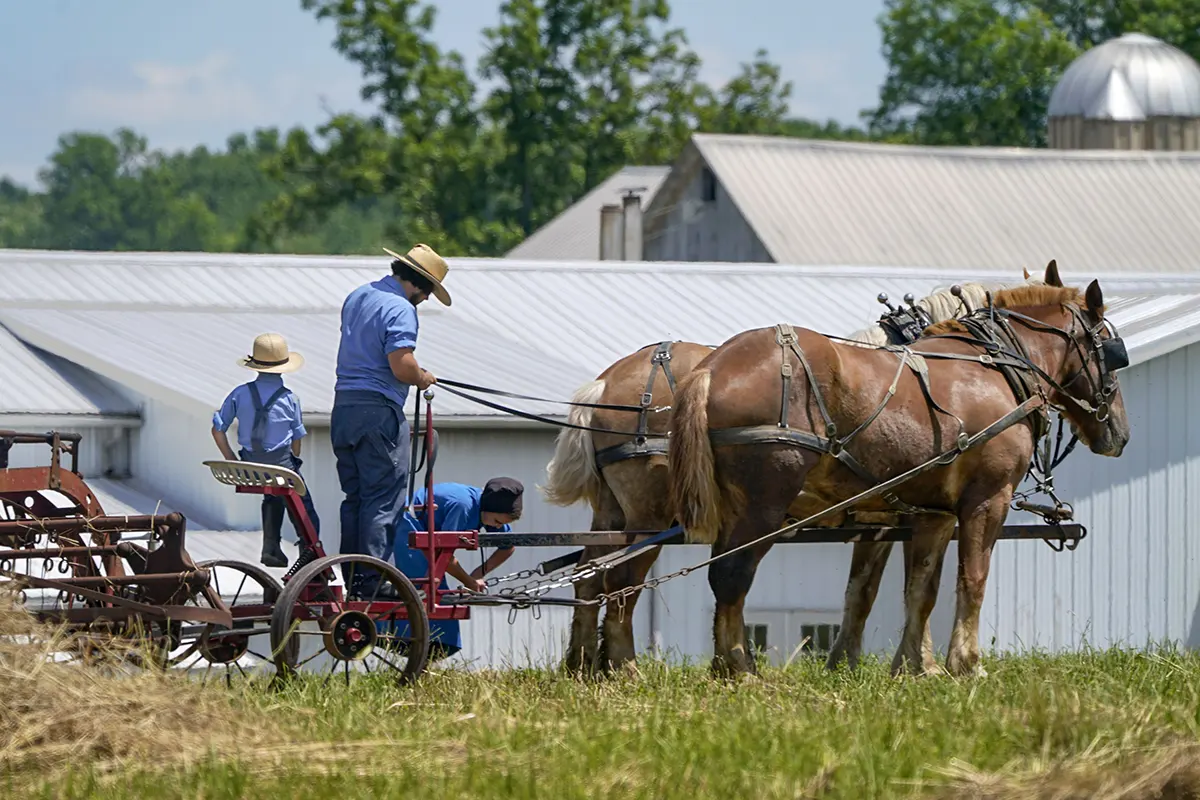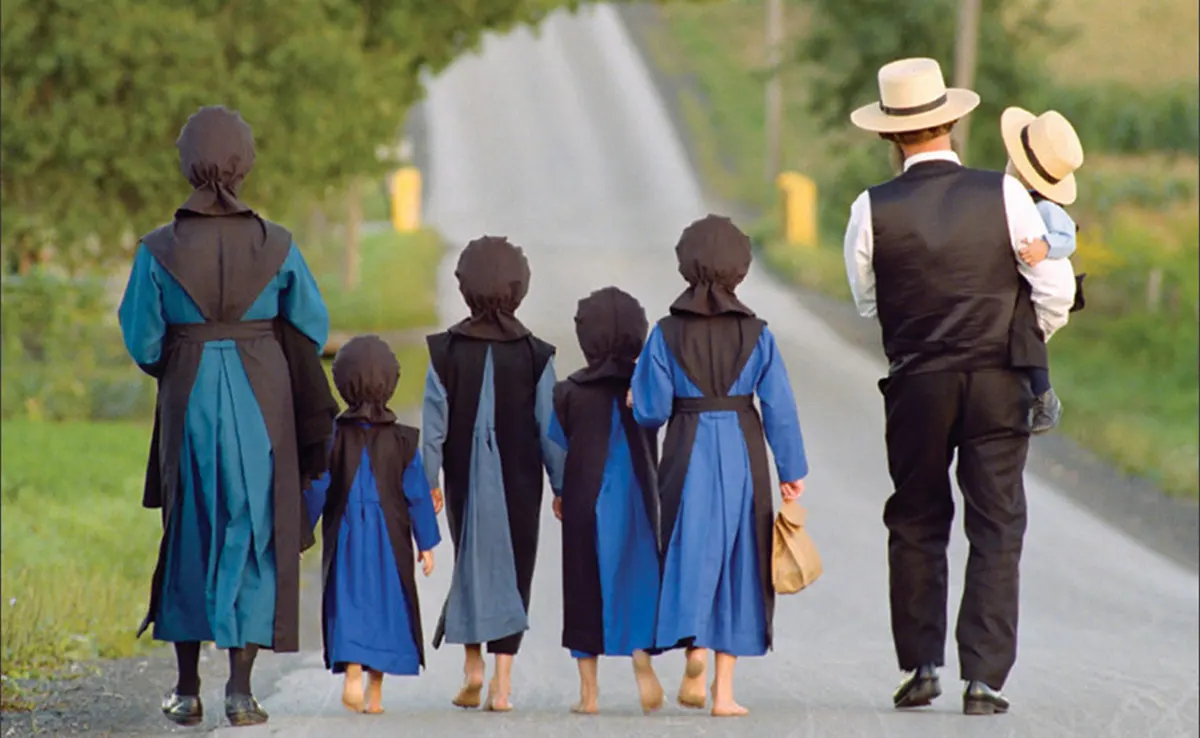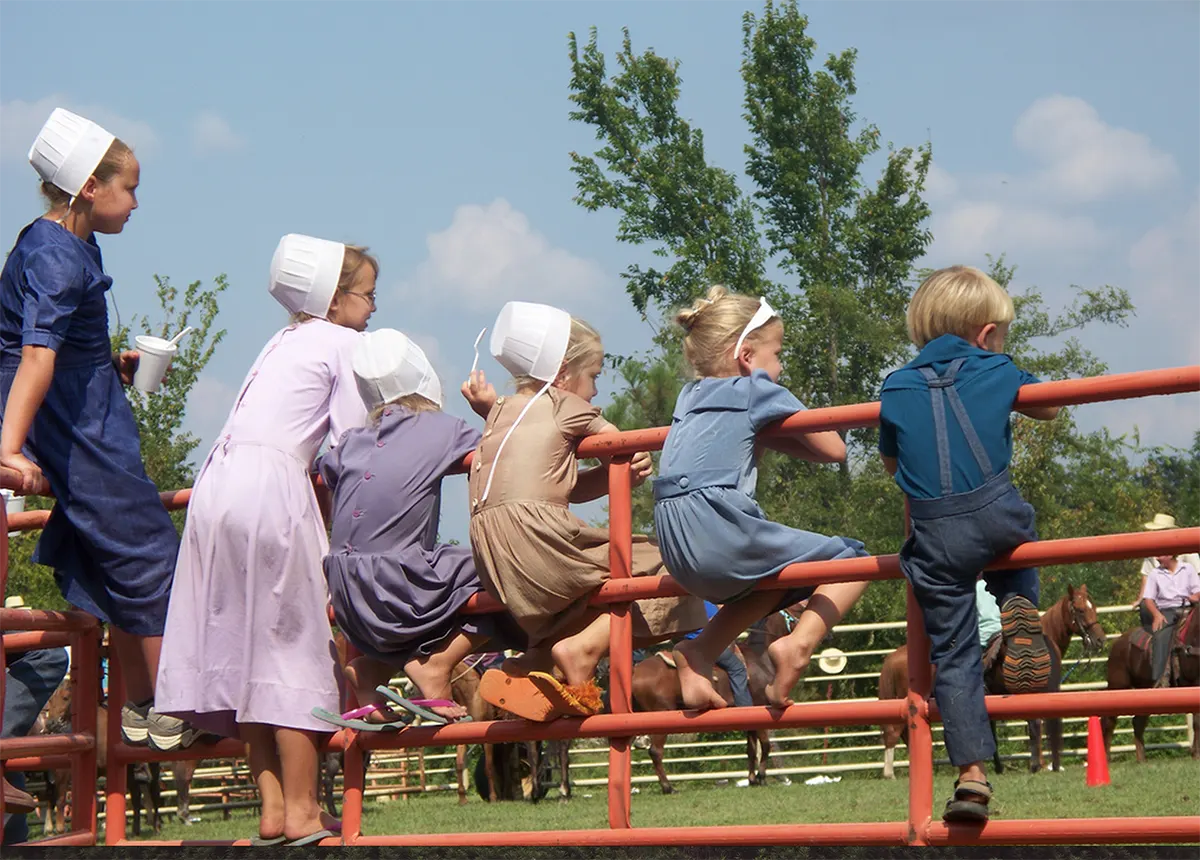While Amish children may differ from non-Amish children in some ways, they are often well-prepared for life within the Amish community. Any parent’s goal is to prepare their children to become valuable members of their respective society. Because of this, many leave us wondering how most Amish families raise their children. What is the Amish parenting style?
A focus on responsibility, discipline, and community values characterizes the Amish parenting style. Amish parents prioritize instilling traditional values and customs in Amish children, such as hard work, respect for elders, and obedience to authority.
To know more about how Amish are as parents, read on.
The Amish Parenting Style
When the world doesn’t understand something, misconceptions are born. It is often the case for Amish people. Many untruths have been voiced from one mouth to another, since they live under a big cloud of mystery.
Many consider the Amish people unique and different, but we sometimes forget they’re like us in some ways. For one, they’re also parents. Their style in raising kids? Maybe.
Responsibility
Teaching responsibility is an aspect of Amish culture rooted in their values of community, self-sufficiency, character development, and tradition.
Amish families place a high value on responsibility and independence and teach all their family members these values from a very young age. Here are some ways how Amish parents teach their children responsibility:
Assigning chores
Many children in Amish families are typically assigned chores from a very early age, around 4 or 5. These chores usually include feeding animals, washing dishes, or helping with farm work.
Generally, Amish boys help their fathers with the outside chores, while Amish girls stay home with their mothers doing the household tasks.
In addition, Amish children being involved with chores helps them develop one of the central values of the Amish life, which is a strong work ethic.
This value is taught early, which allows younger kids to understand that work is a necessary and valuable part of Amish life and that everyone must do their part to ensure the well-being of their family and all the Amish families in their community as well.
Teaching practical skills
If you live in areas with many Amish families and settlements nearby, you’ll commonly see many Amish parents with their children working in the fields and shops.
They teach their children practical skills such as farming, gardening, sewing, and cooking, which are necessary for a self-sufficient Amish lifestyle.
Encouraging independence
The Amish people raise their children to be independent and self-reliant, which helps them develop responsibility and decision-making skills.
The Amish youth are often encouraged to take on tasks and solve problems independently, with their parents’ guidance as needed.
Expecting accountability
In a typical Amish home, each Amish child is often held accountable for his action, and his parents expect him to take responsibility for his mistakes, even at an early age. He must apologize and make amends every time.
Discipline
Discipline is an essential value within the Amish community, and Amish families use various methods to teach their children discipline and self-control. Here are some ways that Amish parents teach discipline:
Setting clear expectations
Parents set clear expectations for their children’s behavior and work, and they communicate these expectations clearly and consistently.
Children are expected to follow the rules, complete chores, and help all their Amish family members and neighbors in various ways.
Using natural consequences
Parents often allow natural consequences when children misbehave or fail to follow expectations. For example, if a child fails to complete a chore, they may be unable to participate in a family activity until it is finished.
Providing consistent consequences
When discipline is necessary, Amish parents provide consistent consequences. It may involve withholding privileges or assigning extra chores. These are clear and are consistently applied across all children.
Emphasizing repentance and forgiveness
Within the Amish community, repentance and forgiveness are emphasized as essential Amish values. When a child misbehaves, they are encouraged to recognize their mistake, seek forgiveness, and make amends.
Using physical discipline
While physical discipline is not the first choice for Amish parents, it is occasionally used in cases of serious misbehavior.
The use of physical discipline in raising children is guided by the belief that it should be done in a controlled and loving manner, and never in anger or frustration.
Community Values
Amish parents play an essential role in teaching these values to Amish children, as these values help to create a strong sense of community and shared identity within the Amish community.
They are passed down from generation to generation through Amish families and across different Amish communities.
Modeling behavior
Parents model good behavior to children while carefully reflecting the values of the community. Amish children learn by observing the actions of their parents and other adults in the community.
Involving children in community activities
Amish children are engaged in various community activities, such as church services, social events, and volunteer work. These activities provide opportunities for children to learn and practice community values.
Encouraging service and volunteerism
The Amish strongly emphasize service and volunteerism, and children are encouraged to participate in community service projects.
It helps children learn the importance of helping others and working together for the benefit of the community.
Teaching respect for authority
Within all Amish communities, respect for authority is a significant value. The Amish teach all Amish children to respect their parents, Amish church leaders, and other authority figures in the community.
Emphasizing humility and simplicity
The Amish value humility and simplicity, and children are taught to live modestly and avoid pride and arrogance. Amish children are also trained to value hard work and self-sufficiency, the fundamental aspects of the Amish culture.
Why Are Amish Children So Well-Behaved?
Amish children are often known for their excellent behavior due to their upbringing and the cultural values of Amish communities.
The Amish parents’ consistency in their parenting style, which includes enforcing consequences for misbehavior, plays a considerable part.
In addition, the Amish communities’ limited exposure to the modern world also limits Amish teenagers’ exposure to negative influences such as drugs, violence, and other unhealthy behaviors.
Are Amish Parents Strict?
The Amish are typically considered to be strict in their parenting style. Since the Amish daily life is usually dependent on the bible, their parenting might have come from the famous bible verse, “He who spares the rod hates his son, but he who loves him is diligent to discipline him” (Proverbs 13:24).
This biblical proverb is reportedly invoked in Amish homes and even Amish schools. While non-Amish parents may see this differently, the Amish families’ belief that spanking and their other parenting styles are vital for their children’s healthy development is stronger.
However, Amish parents are also known for their love and devotion to their children. They consider them their greatest earthly treasure and their biggest blessing from God.
Conclusion
Each Amish family is highly valued in the Amish community, and parents strive to provide each Amish child with a stable and nurturing home environment.
Despite Amish people’s strict parenting style, it is often balanced by prioritizing their family as they love spending time with them and creating a strong family bond.
Amish families often participate in activities and treat their work in the fields or inside their homes as fun family time.
Amish parents, like most parents, love their children because they are their flesh and blood and have a solid emotional attachment to them.
Their only difference from many non-Amish families is that they strive to raise children consistent with Amish beliefs and values.
